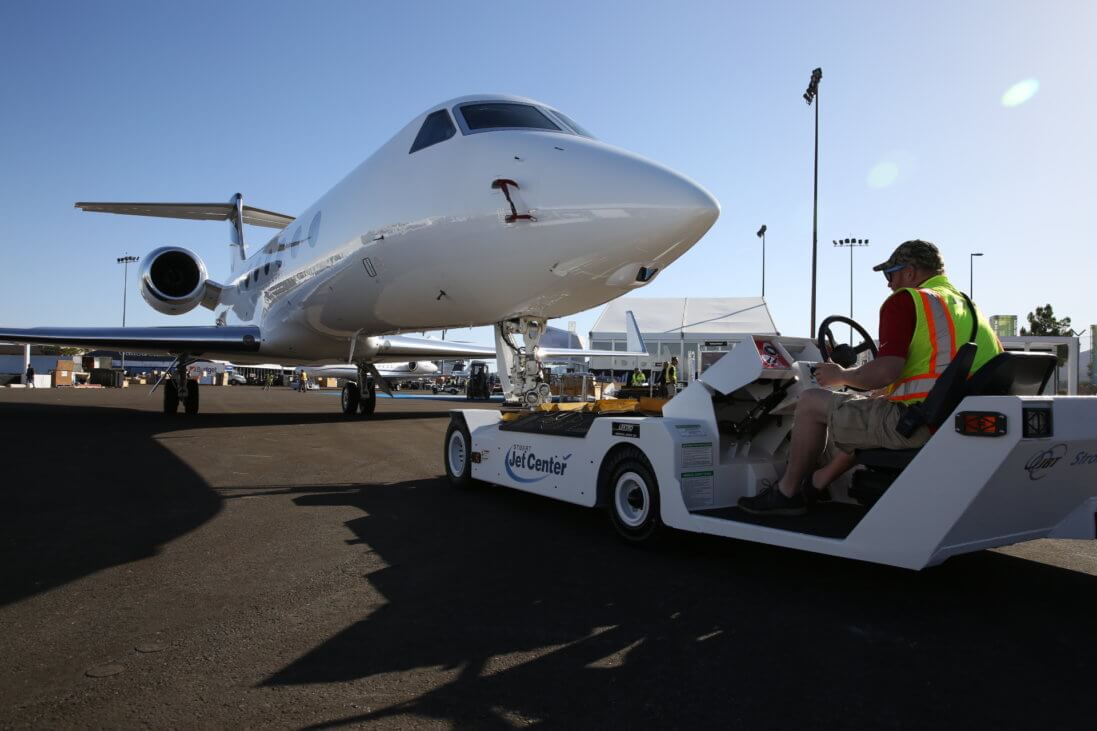
May 19, 2020
The economic instability brought on by the COVID-19 pandemic has affected aircraft owners and operators everywhere. How do these financial conditions impact the already-tight aviation insurance market?
A panel of risk and insurance experts, moderated by NBAA’s Brian Koester, director of flight operations and regulations, addressed these issues on NBAA News Hour: The Unprecedented Insurance Market & the Impact of COVID-19.
Brint Smith, first vice president, specialty group of Alliant Insurance Services, explained the insurance market was already “struggling with profitability” due to increased hull claims – both in quantity and value – leading up to 2018. Then in 2018, liability claims increased as well.
“We were entering the third year of the insurance market adjusting to these claims,” said Smith.
The COVID-19 crisis hit the U.S. in March 2020, grounding much of the U.S. aircraft fleet and creating instability in many arenas. One new variable in the insurance market is regulatory relief from the FAA, including a Special Federal Aviation Regulation (SFAR) published in late April that allows relief from certain flight reviews, crew requirements (including medical certifications) and other provisions.
Panelists explained FAA policy does not supersede operators’ insurance policy, which is a legal contract with the insurance carrier.
“Every policy and every insurer in the market is different,” said Glenn Vallach, senior vice president, general aviation claims division, USAIG.
Vallach encouraged attendees to read their policy, focusing on policy declarations, conditions and exclusions. “Be sure to identify and comply with any requirements related to pilot training and currency,” he added. “If compliance is not currently reasonable or even possible, be frank and open with your broker and carrier to determine the best plan.”
“Open pilot warranty” clauses, which list minimum qualifications of a pilot without requiring the pilot be specifically named, are potential “gotcha” clauses when considering provisions of the SFAR.
Some aircraft owners and operators have chosen to “moth ball” their aircraft to wait out the crisis, placing them in various levels of storage. Joanne M. Barbera, founding partner of Barbera & Watkins, LLC, encouraged owners and operators choosing this strategy to check with their insurance carrier before choosing how to store their aircraft, as some types of storage might violate the terms of the insurance policy.
Obtaining or renewing insurance for older pilots was also discussed. Laura O’Donnell, aviation insurance specialist Marsh & McLennan Agency strongly discourages “carrier jumping” and instead encourages her older pilot clients to remain with a single carrier, especially if they have worked with that carrier for a long period of time. In her experience, a known history with a particular broker and carrier is helpful in the renewal process.
The top tip of the News Hour was to be open and honest with the insurance broker and carrier – during and after the pandemic. Proactive communication is essential for appropriate terms and affordable prices.


 International Business Aviation Council Ltd.
International Business Aviation Council Ltd.